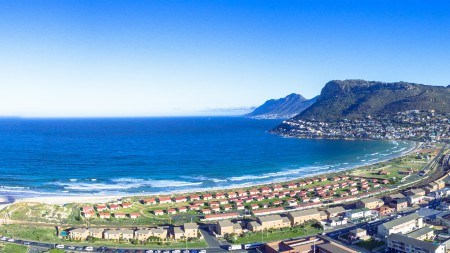Local authorities will have to address infrastructure issues before it impacts on Cape Town's future development growth.
Cape Town is still regarded by many as the playground of the rich and famous, but the gold-plated façade may just have worn a little thinner, as, like the rest of South Africa, the effects of the recession hit home. Popular with foreigners, the area has always enjoyed a high profile with foreign investors. However, overseas interest tapered off during the economic meltdown. The Soccer World Cup may just be the trigger that regenerates overseas interest, particularly in the high-end sector. To reiterate this point, Seeff Properties recently announced that they had sold a property in Camps Bay with a price tag of R28-million to an undisclosed European buyer.Despite this, it appears that the region has another, more urgent state of affairs to contend with.Christo Kannenberg, a town planner and director of Planning Partners, said that one of the biggest challenges the area faced was a lack of infrastructure. “Capacity issues such as potable water, waste water treatment and electricity supply that are being inadequately addressed by local authorities are hampering both present and future projects,” he said. “Many new township developments are either not being approved at all, or are being delayed until infrastructure capacity issues have been resolved.”
Kannenberg said his company had noticed a drop in new projects. He said that while this was not surprising given that large-scale urban development had taken place over the past five years, it would take time for demand to catch up in both the residential and commercial sectors. However, he emphasised that because of the long lead times required to produce a product in the property market, developers could not afford to wait too long before they initiated new developments. It appears that although buyers are re-entering the property market, it is affordable homes that are grabbing the lion’s share of the market. People who were affected by sky-rocketing house prices are taking full advantage of the downturn to buy existing homes, which are now selling at more reasonable, affordable levels. Consep CEO, Theo van der List, said that while price remained a major factor, a large number of buyers were unwilling to compromise on quality. “Today's investors have become far fussier that before,” he said. “Our research has shown that they are no longer willing to accept cheap replicas, but are instead opting to go for more expensive finishes.” Finance remains a major hurdle for both developers and buyers. Van der List said that while banks were still willing to finance developers, the goal posts had shifted, and companies were closely scrutinised before banks took out their chequebooks. As with the rest of the country, developers who understand the market and who have made provisions for the downturn have survived, while the cowboys who entered the industry for all the wrong reasons have quietly ridden off into the sunset.



